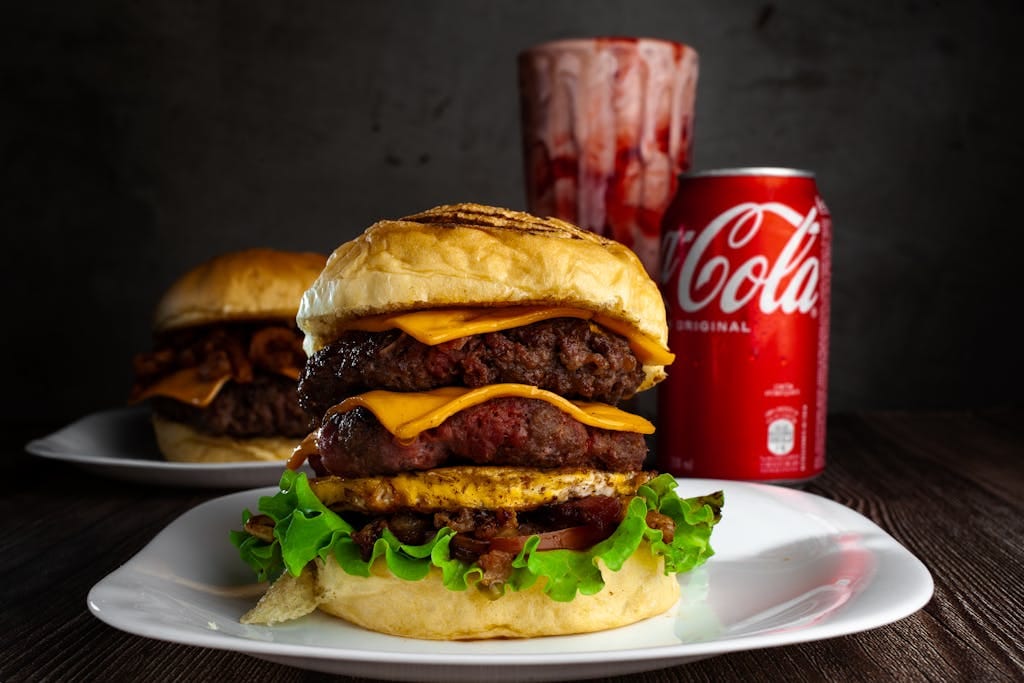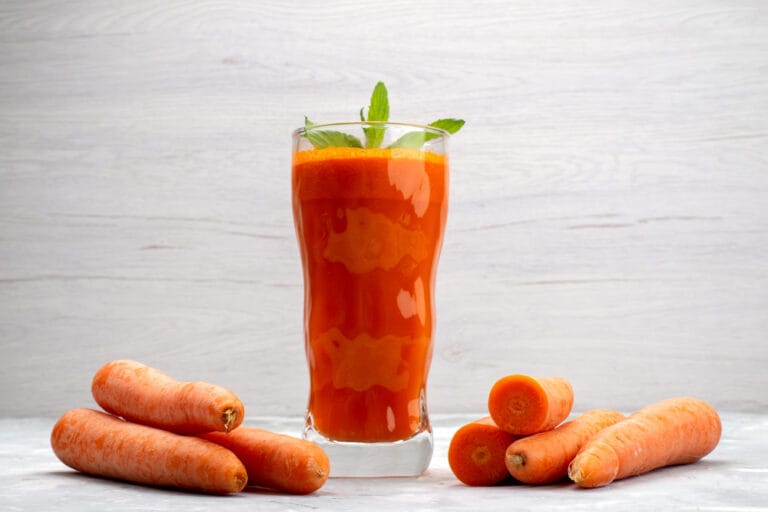FREE SHIPPING OVER $50
Is Phenylalanine Secretly Sabotaging Your Diet? Here’s the Truth
Phenylalanine is an essential amino acid found in many protein-rich foods and supplements. For years, it has been celebrated for its role in muscle growth and overall health. However, emerging discussions suggest that phenylalanine might have a darker side, potentially sabotaging your diet without you even knowing it. In this article, we’ll explore the truth about phenylalanine, discuss its benefits and potential drawbacks, and help you decide if it’s really undermining your weight loss efforts.
Many fitness enthusiasts and dieters often turn to protein supplements or high-protein diets to achieve their goals. Phenylalanine, along with other amino acids, is a key component of these diets.
What Is Phenylalanine?

Phenylalanine is one of the nine essential amino acids, meaning your body cannot produce it on its own, so you must get it from food. It plays a vital role in protein synthesis, serves as a building block for neurotransmitters like dopamine, norepinephrine, and epinephrine, and supports various bodily functions. You can find phenylalanine in foods such as meat, dairy products, eggs, soy products, and even in some protein supplements.
While phenylalanine is crucial for overall health, some recent discussions have raised questions about its role in diet and weight management. Could it be that phenylalanine is secretly sabotaging your efforts to lose weight or maintain a healthy diet? To answer that, we need to look closely at both its benefits and potential downsides.
The Role of Phenylalanine in the Body
Understanding how phenylalanine works in your body is key to assessing its impact on your diet. Here are some of the fundamental roles of this amino acid:
- Protein Synthesis:
Phenylalanine is integral in building proteins, which are essential for muscle repair and growth. This makes it a favorite among athletes and those looking to increase muscle mass. - Neurotransmitter Production:
As a precursor to dopamine and other neurotransmitters, phenylalanine plays a role in mood regulation and mental clarity. This can have indirect benefits on your overall well-being and energy levels. - Hormonal Balance:
The conversion of phenylalanine to tyrosine helps produce important hormones that influence metabolism. This process is critical for maintaining energy levels and a balanced metabolic rate.
While these functions highlight why phenylalanine is valued in many diets and supplements, the conversation changes when we examine how it might affect weight loss efforts.
Could Phenylalanine Sabotage Your Diet?
The debate around phenylalanine and weight loss centers on a few key points. Some experts claim that in high amounts, phenylalanine might trigger responses that counteract weight loss. Here are some potential concerns:
- Appetite Regulation Issues:
Although phenylalanine is involved in neurotransmitter production, an imbalance might disrupt the normal signaling of hunger and satiety. This could lead to increased cravings or overeating. - Metabolic Impact:
In certain individuals, high levels of phenylalanine might affect insulin sensitivity and glucose metabolism. This disruption could theoretically contribute to weight gain or make weight loss more challenging. - Interaction with Other Nutrients:
Phenylalanine does not act in isolation. Its effects can be influenced by the overall balance of amino acids and other nutrients in your diet. An imbalance might hinder the effectiveness of your dietary efforts, particularly if you’re relying heavily on protein supplements. - Individual Sensitivity:
Every person’s body reacts differently to various nutrients. Some individuals might be more sensitive to phenylalanine, leading to adverse effects such as headaches, mood swings, or digestive issues that could indirectly affect their diet.
It’s important to note that many of these concerns are still under investigation. The majority of research supports the idea that phenylalanine is safe when consumed at recommended levels.
Expert Insights and Research Findings
Medical professionals and nutrition experts are beginning to look closely at the relationship between amino acids like phenylalanine and weight management. Some studies have shown that while phenylalanine is essential for many bodily functions, an overabundance may disrupt the delicate hormonal balance required for optimal metabolism.
For instance, research has highlighted that elevated levels of certain amino acids can influence the secretion of hormones that regulate appetite. Although these studies are still in their early stages, they suggest that moderation is key. Balancing phenylalanine with other amino acids and nutrients is essential for reaping its benefits without encountering potential drawbacks.
Additionally, clinical trials involving weight loss regimens have begun to control for the amount of phenylalanine in participants’ diets. Initial results indicate that diets with balanced amino acid profiles, rather than those overly reliant on any single amino acid, tend to yield better results in terms of fat loss and overall metabolic health.
How to Balance Phenylalanine Intake
If you’re concerned that phenylalanine might be sabotaging your diet, the solution may not be to eliminate it entirely but to ensure you’re maintaining a balanced intake. Here are some practical strategies:
- Focus on Whole Foods:
Instead of relying heavily on protein supplements, prioritize whole foods like lean meats, dairy, legumes, and nuts. Whole foods naturally balance phenylalanine with other amino acids and essential nutrients. - Diversify Protein Sources:
Incorporate a variety of protein sources in your diet. This helps maintain an optimal amino acid profile and prevents overconsumption of any one amino acid. Variety is key to balanced nutrition. - Monitor Supplement Use:
If you take protein supplements, consider choosing those with a balanced amino acid composition. Look for products that clearly state the ratios of different amino acids, and consult with a healthcare provider to determine what’s best for your dietary needs. - Practice Moderation:
Even if you enjoy high-protein diets, it’s important to practice moderation. Overloading your diet with any single nutrient can disrupt overall balance. A varied diet ensures that you get the benefits of phenylalanine without the potential downsides. - Regular Health Check-Ups:
Periodically, have your nutrient levels checked, especially if you’re following a specialized diet or taking supplements regularly. Monitoring your health can help you catch any imbalances early and adjust your diet accordingly.
Practical Tips for a Balanced Diet
Beyond managing phenylalanine, a balanced diet is the cornerstone of successful weight management. Here are some additional tips to ensure your diet is well-rounded and supportive of your overall health:
- Eat a Variety of Vegetables:
Vegetables provide essential vitamins, minerals, and fiber that aid digestion and overall metabolism. Aim for a colorful plate with a mix of leafy greens, cruciferous vegetables, and root vegetables. - Include Healthy Fats:
Healthy fats from sources like avocados, olive oil, and nuts support brain function and hormone balance. They also help you feel full and satisfied, reducing the likelihood of overeating. - Choose Complex Carbohydrates:
Whole grains and legumes offer sustained energy and support stable blood sugar levels. Avoid simple sugars that can lead to spikes and crashes, which may trigger hunger. - Stay Hydrated:
Drinking plenty of water throughout the day is crucial for digestion, metabolism, and overall well-being. Hydration also helps maintain energy levels and supports weight loss. - Mindful Eating:
Pay attention to your body’s hunger and fullness cues. Eating slowly and mindfully can prevent overeating and help you enjoy your meals more. - Plan Your Meals:
Meal planning can help you maintain balance and avoid impulsive, unhealthy choices. Prepare meals ahead of time to ensure you have nutritious options available.
Conclusion
The notion that phenylalanine is secretly sabotaging your diet might sound alarming, but the truth is nuanced. Phenylalanine plays a vital role in many of the body’s functions, from muscle repair to neurotransmitter production. However, like any nutrient, balance is crucial. Excessive intake, especially through heavily processed supplements, may disrupt hormonal balance and metabolic processes that are key to effective weight loss.
Related Articles
- Reverse Aging? New Study Reveals How Omega-3s Could Make Your Cells 10 Years Younger
- Top FODMAP-Friendly Protein Powders and Meal Replacements You Need Now
- Try These 5 High-Protein Smoothie Ingredients Instead of Protein Powder
- This High-Protein Snack Can Help Lower Your Cholesterol, Say Dietitians
- The Unexpected Ingredient I Added to My Eggs That Boosted My Protein Intake







